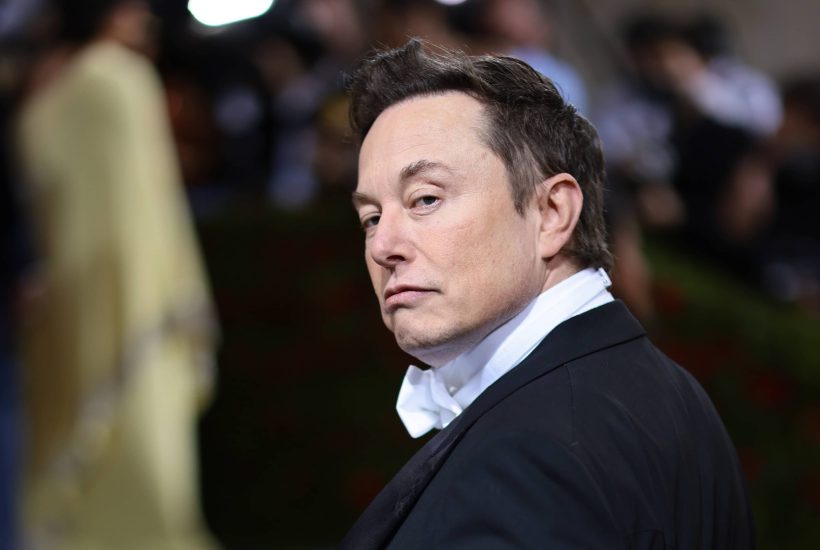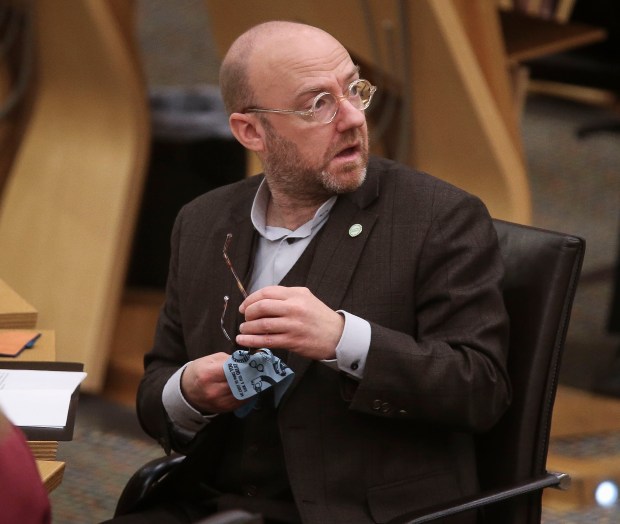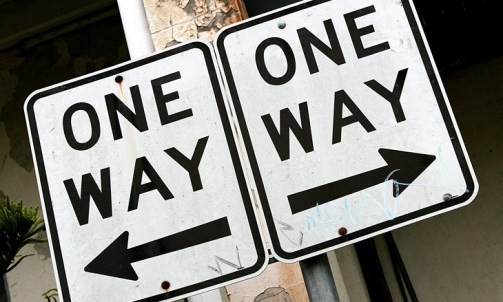Billionaire edgelord Elon Musk has just given progressives another reason to dread his ongoing attempt to buy Twitter. The founder of Tesla and SpaceX has confirmed that, should he succeed in acquiring the social media site, he would rescind the ban on Donald Trump’s account.
Musk told the FT’s Future of the Car conference he would ‘reverse the permaban’ because it was ‘a morally bad decision and foolish in the extreme’. Twitter had managed to ‘amplify (Trump’s voice) among the right’, which was ‘morally wrong and flat-out stupid’. The culprit, Musk said, was the company’s ‘strong left bias’, adding: ‘Twitter needs to be much more even-handed.’
It’s important to remember the grounds on which Trump was banned: two tweets posted on 8 January last year.
The first hailed Trump’s voters as ‘great American Patriots’ who would have ‘a GIANT VOICE long into the future’ and would not be ‘disrespected or treated unfairly’. Twitter determined that the words ‘American patriots’ were ‘being interpreted as support for those committing violent acts at the US Capitol’. The reference to his voters’ ‘giant voice’ and refusal to be ‘disrespected’ was ‘interpreted as further indication that Trump does not plan to facilitate an ‘orderly transition’’ and that he intended to ‘support, empower, and shield’ supporters who believe the election was stolen from him.
Trump’s second tweet, confirming he would not attend president Biden’s inauguration, was ‘being received by a number of his supporters as further confirmation that the election was not legitimate’ and additional indication that there would be no ‘orderly transition’. Twitter added that Trump announcing his non-attendance ‘may also serve as encouragement to those potentially considering violent acts that the inauguration would be a ‘safe’ target, as he will not be attending’. Trump’s account was thus suspended ‘due to the risk of further incitement of violence’.
So the red lines, it seems, are potentially inciting violence and suggesting that an election result was arrived at illegitimately. What, then, has changed between January 2021 and today?
Something must have, otherwise how do we explain Twitter’s inaction in the face of a number of verified users, including prominent political figures, tweeting about the Supreme Court in language no less incendiary than Trump’s? After a leaked draft opinion indicating the Supreme Court was on the brink of overturning Roe vs Wade and Planned Parenthood vs Casey, progressives let fly with splenetic, vengeful rhetoric on Twitter.
Daniel Uhlfelder, the Democrats’ candidate for Florida attorney general, tweeted: ‘It’s time for a revolution’. It was a call echoed by Maria Shriver, a journalist and member of the Kennedy clan, who told her two million followers: ‘This is revolution time!’ Lori Lightfoot, the Democrat mayor of Chicago, tweeted: ‘To my friends in the LGBTQ+ community – the Supreme Court is coming for us next. This moment has to be a call to arms.’ She added: ‘We will not surrender our rights without a fight–a fight to victory!’
After a church counselling group had its Wisconsin headquarters set on fire, one verified journalist opined: ‘More of this. May these people never know a moment of peace or safety until they rot in the ground.’ Another posited a ‘real life trolley problem’, asking: ‘If you had the chance to kill Clarence Thomas and Samuel Alito, the two oldest right wing Supreme Court judges, should you do it while Biden can get his nominees to replace them confirmed?’ When former Republican Bill Kristol disavowed mobs turning up outside Supreme Court justices’ homes, a celebrated cartoonist, also verified by Twitter, responded: ‘Fuck this. Go to people’s homes. Go to their places of worship. Make them as uncomfortable as they are trying to make you. This is not the time for civility, this is the time for mass resistance and demonstration.’
It will not surprise you to learn that none of these people have been handed a ban or, as far as I can tell, even a temporary suspension by Twitter. If the rules on inflammatory rhetoric are not applied evenly, there isn’t much hope when it comes to undermining democratic legitimacy. Incoming White House press secretary Karine Jean-Pierrer has previously used Twitter to disseminate the false claim that the 2018 Georgia gubernatorial election was ‘stolen’. The Democrats’ narrow defeat in that race remains a sore point for progressives. The party’s candidate at the time, Stacey Abrams, has never conceded defeat and maintains ‘the game was rigged against the voters of Georgia’. Jean-Pierrer’s account – also verified and with more than half a million followers – seems not to have fallen foul of Twitter’s rules about spreading election disinformation.
‘It’s okay when we do it,’ is the unwritten constitution of progressivism, a standard incompatible with liberal democracy. If the rules apply to one side, they are not rules. They are partisan preferences dressed up as terms and conditions. Once you do away with common standards, you do away with the sense of agreement that underlies them. If there are no neutral spaces in which to debate, a series of self-contained arguments will take place and none of them will enjoy legitimacy.
I remain sceptical of a freedom of expression that depends on the benevolence of a billionaire to endure. But if Elon Musk does end up owning Twitter, he could hurt Silicon Valley authoritarianism by rejecting their intolerant caprices. Progressives who have faith in the strength of their arguments should have nothing to fear.
Got something to add? Join the discussion and comment below.
Get 10 issues for just $10
Subscribe to The Spectator Australia today for the next 10 magazine issues, plus full online access, for just $10.




















Comments
Don't miss out
Join the conversation with other Spectator Australia readers. Subscribe to leave a comment.
SUBSCRIBEAlready a subscriber? Log in